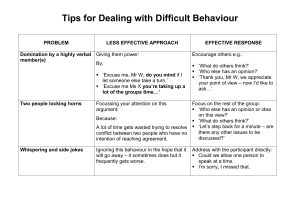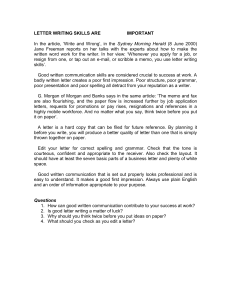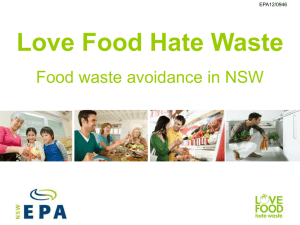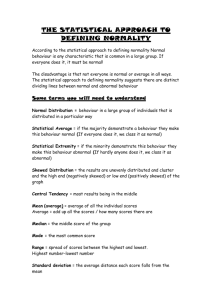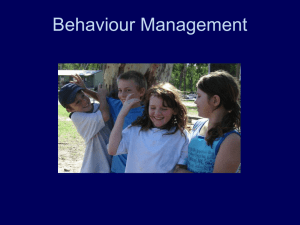developing educational projects for Love Food Hate
advertisement
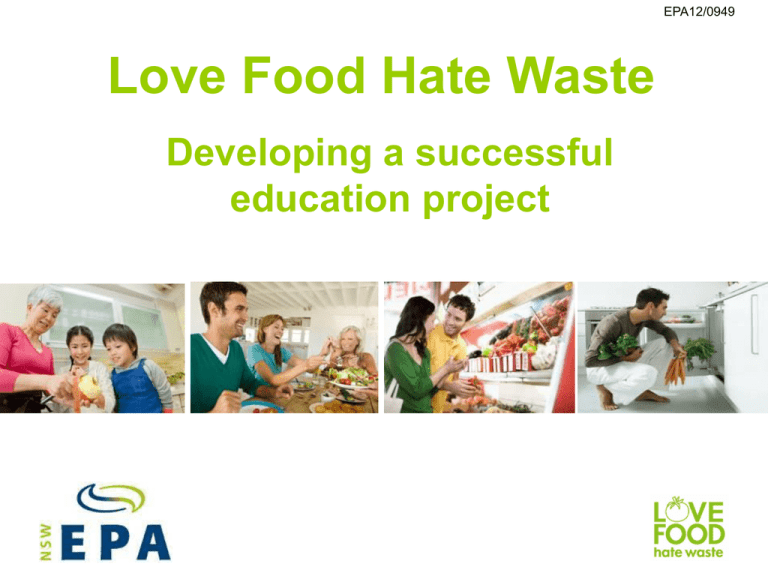
EPA12/0949 Love Food Hate Waste Developing a successful education project Successful education projects • • • • • • Are well planned Start with identifying the problem you are addressing Don’t try to fit the “tool” to the project Drive behaviour change Involve stakeholders and participants from the start Support and strengthen existing community networks and help create new ones • Respond to the diverse needs of a community • Motivate and encourage community ownership Project planning considerations Focus on the issue • All projects should focus on food waste avoidance, not recycling Project objectives • These need to be measurable and achievable within the ten month timeframe • Aim for no more than four objectives in dot point form Links to other programs/ projects/groups • Don’t re-invent the wheel • Consider tapping into existing initiatives in your community or think about how you can adapt what others have done to suit your community The target audience • Identify the best target audience for your project • How can you most effectively work with this audience? Managing risks • Identify the potential risks and consider the degree of risk – minor, major, disaster • What are the strategies you will have in place to guard against and manage these risks and what is your Plan B if these strategies don’t work? Project planning considerations Lasting links • Include longevity in your project design • Make lasting links with other projects • Have you created a Love Food Hate Waste legacy with your community? Work together • Have you created something that can be used again in the future? • What partners and networks could you work with to help give the project a life after the grant has ended and extend your reach during the project? Value • Involve them early • What is going to achieve the biggest ‘bang for buck’ given the resources you have? • Consider staff, financial inputs, other resources, time frames, existing commitments. You may have a great idea but it might not be feasible within the current timeframe, budget and/or resources • Could you adapt this idea so that it could be built upon later? Promotion • How will you promote the project and its achievements during and at the end of the project? Tips for monitoring and evaluation Length of project Be realistic about what you can measure in ten months. Factor in time for monitoring during the project and evaluation at the end EPA support Talk to us, and be open about the challenges your project is facing. If things aren’t going to plan we can work together to look at options to guide your project Follow up with participants If you are engaging with your community and aiming for behaviour change, consider how you will ask if you can catch up with them down the track to evaluate your project’s impact. A simple tick a box on an evaluation form can provide you with permission to contact them later Evaluation Benchmark participant attitudes, knowledge and behaviour to help you measure success. Options include pre and post event surveys and records of food waste volumes. Tips and tricks for an excellent project Keep it simple This makes your project easier to understand Use different engagement options People are drawn to things for different reasons. Some come to see a celebrity others want a prize Create buzz and make it fun Make your project something people want to be part of Use incentives Give people a reason to change their behaviour Show the benefits Tell and show people what they can gain Make it accessible Offer activities at different times, dates locations, online, face to face Use social proof Show that other people are already doing it Engage group dynamics People follow what other people do Use labels People like being able to name things Pledges Allow people to make a commitment Be active Show people what they can do and get them to do it, don’t just offer information Online resources Does Your Project Make A Difference? www.environment.nsw.gov.au/community/projecteval.htm Guide to using research in sustainability programs www.environment.nsw.gov.au/education/researchguide.htm What we need is…A community education project www.environment.nsw.gov.au/community/edproject/index.htm
